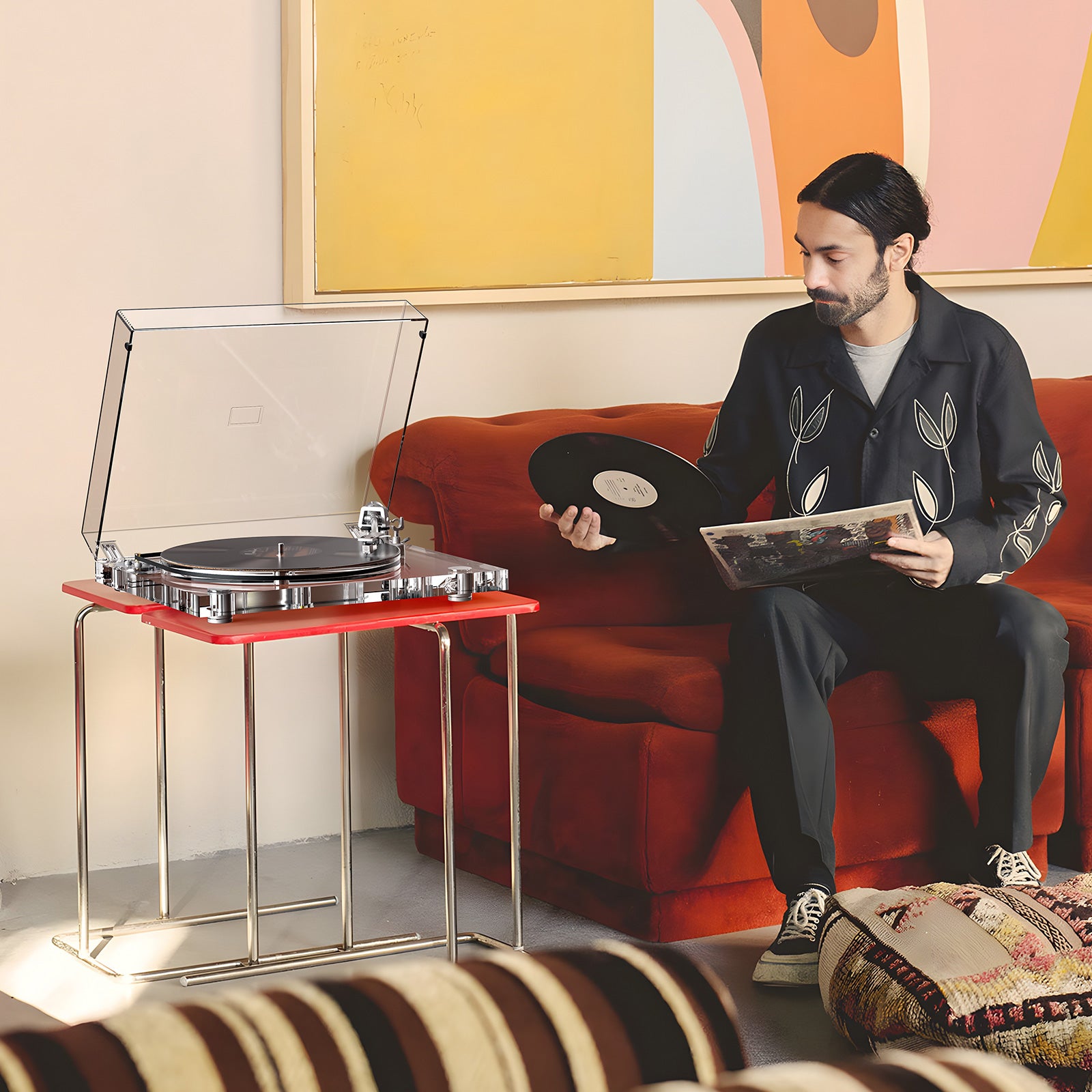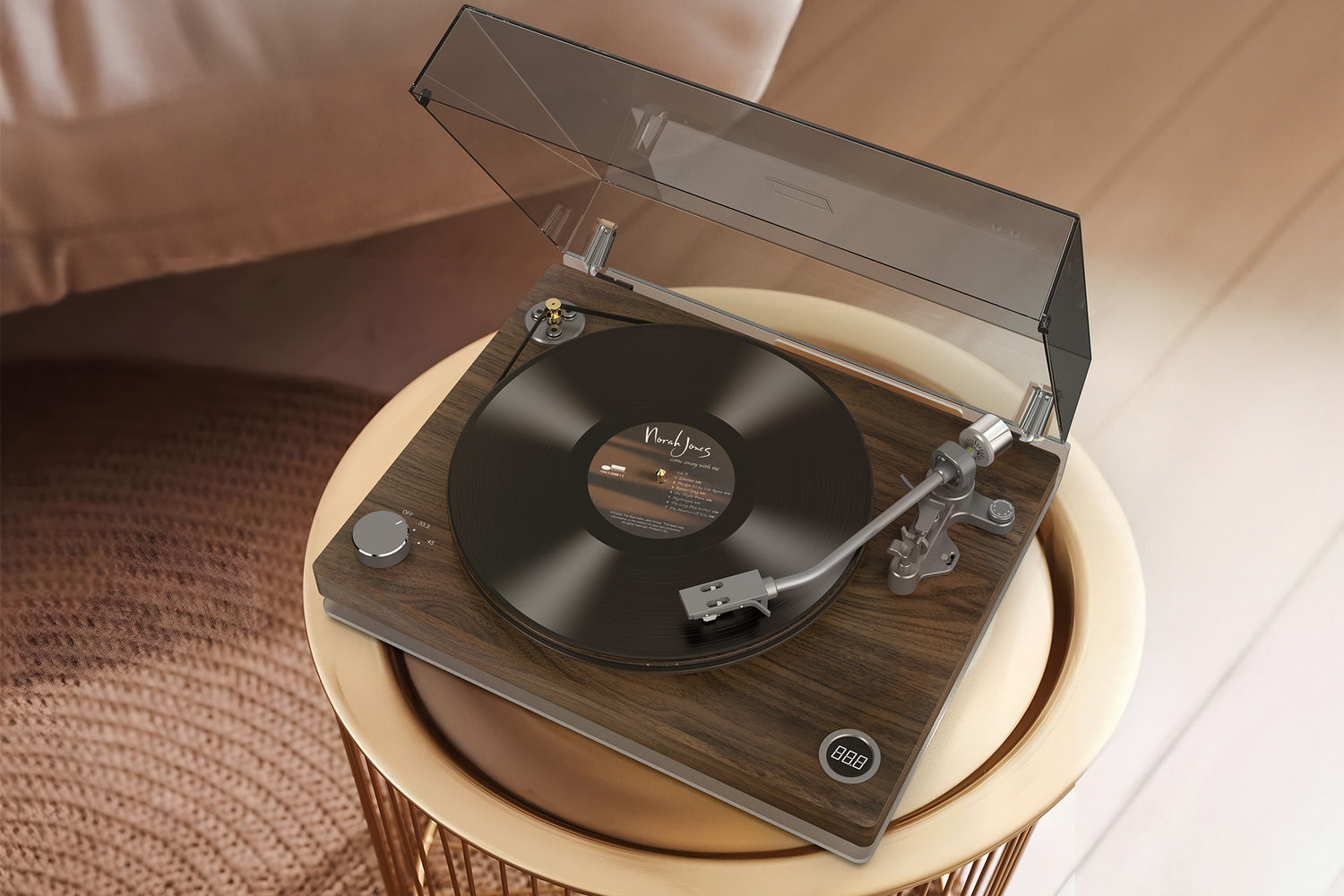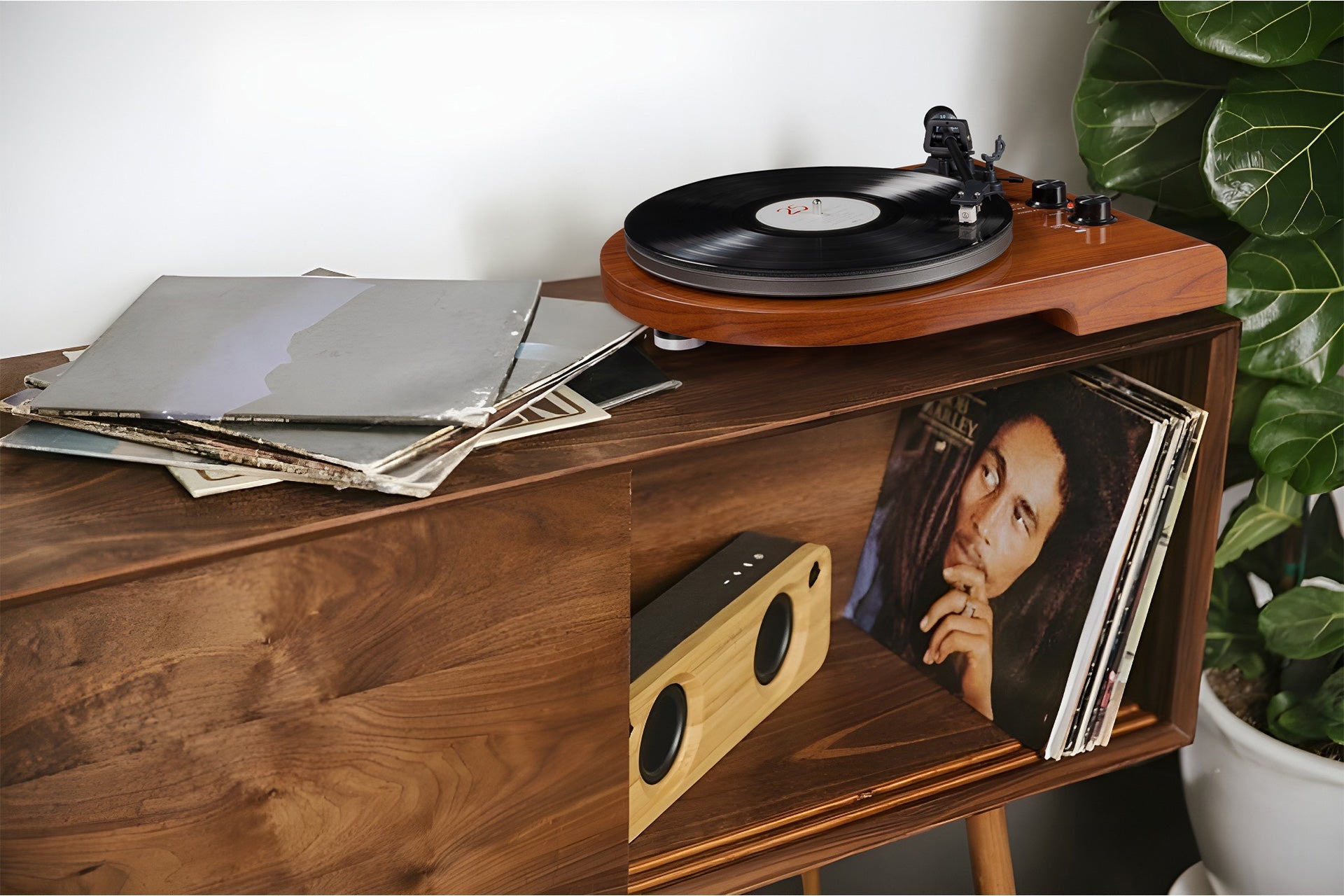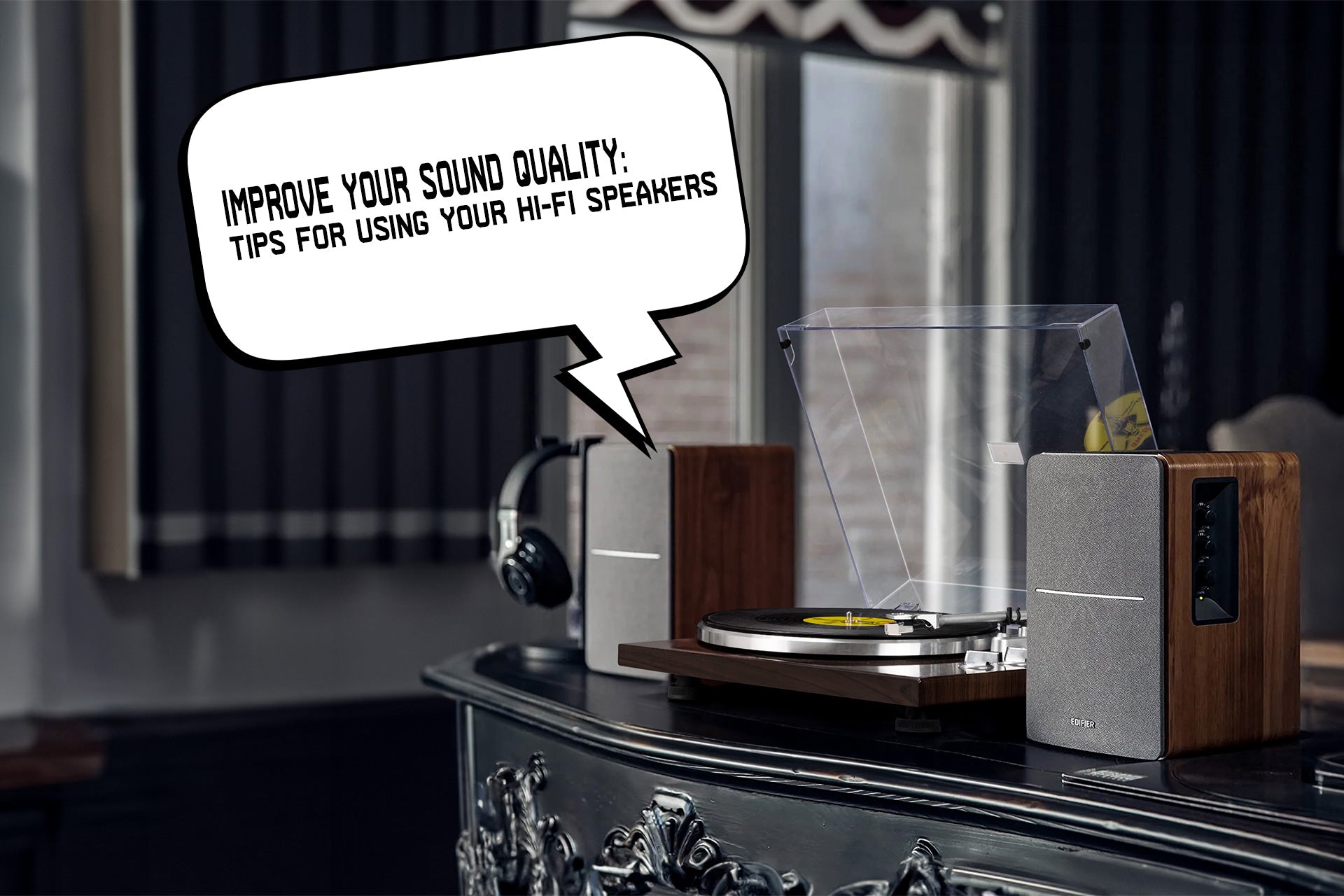Introduction
In today's digital music era, vinyl records still maintain their unshakable position, and high-quality vinyl turntables have become an important investment for every music lover and audio fan. A good turntable can not only enhance the listening experience, but also bring more depth and details to your vinyl collection. In this article, we will explore in detail what kind of turntable can be called a good turntable and how to choose a high-quality turntable that is suitable for you.
1. Build Quality and Construction
When choosing a good turntable, build quality is one of the most important factors. The material and design of the turntable directly affect the clarity, stability and durability of the sound. A high-quality turntable usually uses sturdy materials such as metal, steel or reinforced plastic, which can effectively reduce vibration and resonance, which is crucial to ensure the stability of the sound. High-quality construction also means that each part of the turntable (such as the tray, bracket and motor) will be carefully engineered to ensure reliability over time.
For high-quality turntables, fine construction can greatly improve the sound quality and reduce unnecessary noise and vibration. If you plan to set up an analog audio system in your music room, a solid turntable can lay a solid foundation for your equipment and audio experience.
2. Precision Engineering and Components
Precision engineering is another key factor that determines whether a turntable is good or not. Every component inside the turntable needs to undergo precision engineering and rigorous manufacturing processes. This includes the accuracy of the motor, the balance of the belt drive system, and the stability of the tonearm and stylus. The precision of each detail directly affects the turntable's speed stability, accuracy, and ultimately the sound performance.
In addition, high-quality turntables usually use higher standards of precision components, such as advanced tonearms and cartridges, which can provide higher sound fidelity and better track tracking. Precision engineering is not only reflected in the operation mechanism of the turntable, but also includes optimizing the transmission of audio signals to ensure that your vinyl collection can perfectly present every note.
3. Speed Stability and Accuracy
The speed stability and accuracy of the turntable is one of the core factors affecting sound quality. Whether it is 33⅓ RPM or 45 RPM, maintaining a consistent speed is essential to ensure that the audio is played correctly. Unstable speed can cause music to shift in pitch, inconsistent rhythm, and even an unpleasant listening experience.
High-quality turntables are equipped with high-precision motor systems and sophisticated speed control mechanisms to ensure that the turntable maintains a stable rotation speed during playback. This precision ensures that each record can be played at the correct speed to provide the best listening experience. If you want to have the best vinyl playback experience, it is very important to choose a turntable with excellent speed stability.
4. Tracking Ability and Cartridge Compatibility
Tracking ability and cartridge compatibility are another important factor to ensure that the turntable can accurately read the content of the vinyl record. The turntable's tone arm needs to be able to accurately track each track of the record, and all this depends on the quality and configuration of the stylus and cartridge.
High-quality turntables are usually equipped with high-end cartridges, which are designed to ensure that the sound needle glides smoothly on the vinyl record without causing track skipping or damage due to uneven pressure or excessive vibration. At the same time, the turntable should also support the use of various types of cartridges and more compatible audio components, so that users can adjust the device settings according to their personal preferences to further improve the fidelity of the sound.
5. Sound Quality and Fidelity
One of the most important criteria for any quality turntable is the sound quality and audio fidelity it provides. A good turntable will provide clear, detailed sound quality and be able to accurately reproduce every musical detail in the vinyl records.
The sound quality of a turntable depends not only on the build and component quality of the turntable itself, but also on other audio equipment such as the tonearm, cartridge, and needle. A high-quality turntable can be seamlessly connected to a high-fidelity audio system to provide a perfect music experience for vinyl lovers. From the deep bass to the clear treble, a good turntable will allow you to rediscover every song in your vinyl collection and feel its original charm.
6. User-Friendly Features and Convenience
While sound quality and sophisticated design are the most important considerations when buying a turntable, an easy-to-use turntable cannot be ignored. Today, many modern turntables are equipped with many user-friendly features, such as Bluetooth connectivity, built-in preamplifiers, and auto-stop functions. These features make the turntable more convenient to use, especially for those who want a more streamlined listening experience.
For audiophiles, the ability to easily connect the turntable to other audio devices (such as speakers, headphones or amplifiers), or play audio via wireless Bluetooth, greatly improves the convenience of use. In addition, some turntables are also designed with modern operating interfaces, such as touch screens or digital displays, making it easier for users to control volume, playback mode and other settings.
7. Aesthetics and Design
A turntable is not only an audio device, but also a piece of art in the home environment. Therefore, aesthetic design is also an important criterion for judging the quality of a turntable. Whether it is a retro style or a modern minimalist design, the appearance design of a turntable can add a unique charm to your music room.
High-quality turntables are usually designed with a focus on material matching and color coordination. They not only look exquisite, but also match your other audio equipment perfectly. In addition, well-designed turntables are often more durable and will not affect the overall beauty due to wear and tear over time. No matter what your home style is, finding a turntable that is both beautiful and practical can enhance your overall listening experience.
Conclusion
Choosing a good turntable is not just about playing vinyl records, it is also about experiencing the charm of sound quality and enjoying the warm sound that flows from analog audio systems. By paying attention to build quality, precision design, sound stability, and other user-friendly features, you can choose the turntable that best suits your needs and give your vinyl collection a new lease of life. Whether you are an audio novice or an experienced audiophile, a good turntable can bring unparalleled listening enjoyment and make every vinyl record full of life.












Leave a comment
All comments are moderated before being published.
This site is protected by hCaptcha and the hCaptcha Privacy Policy and Terms of Service apply.